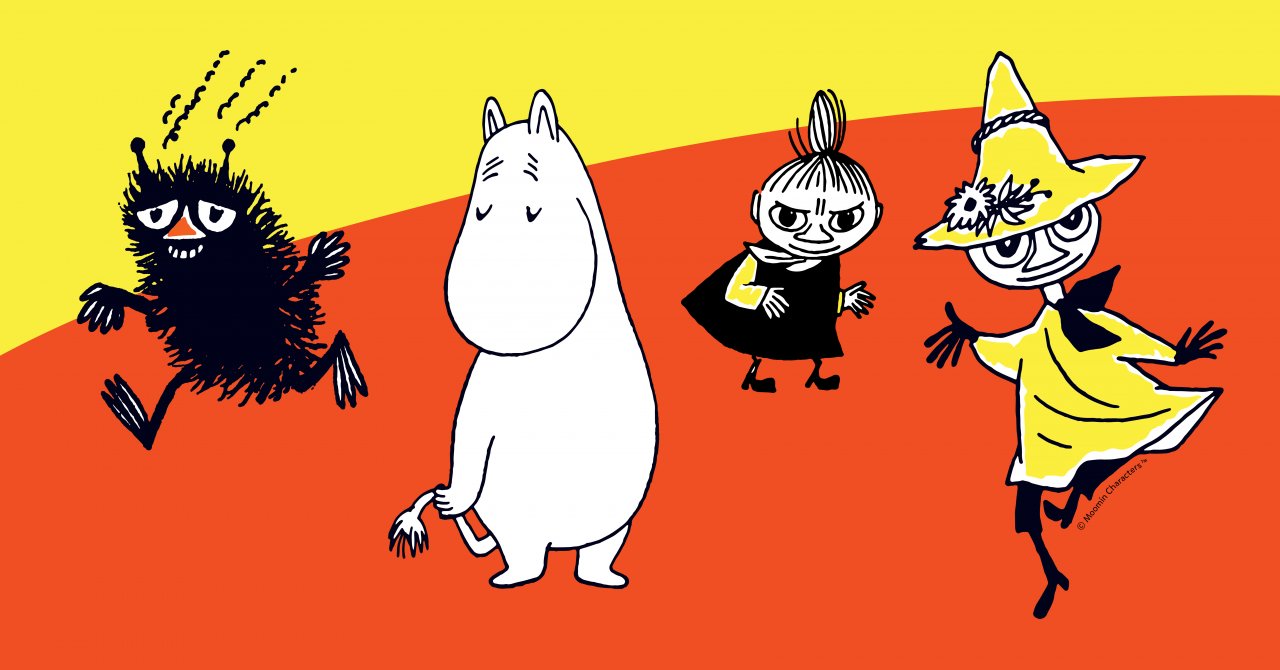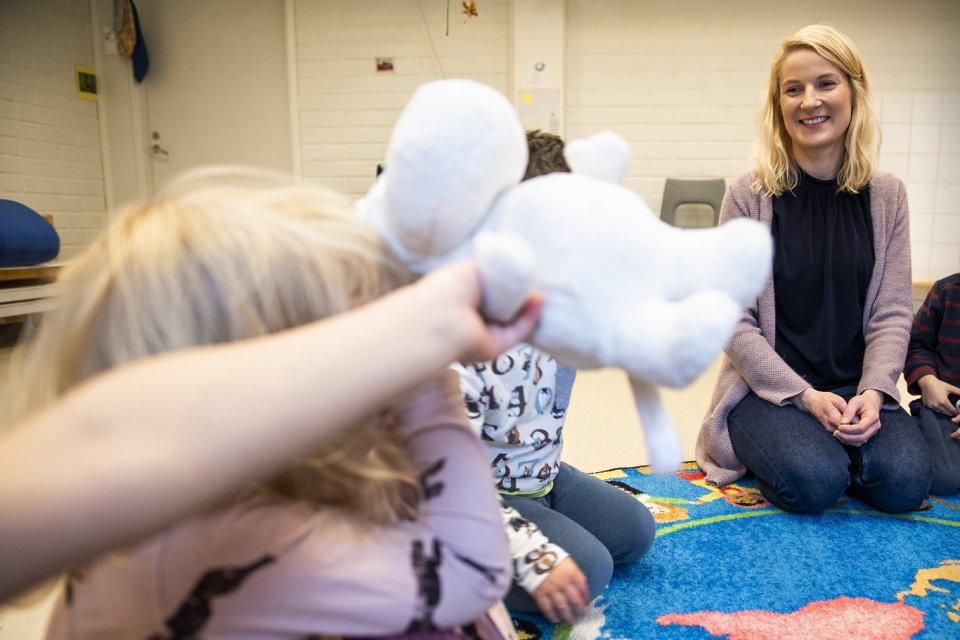The Friendship Skills with the Moomins material is now available in more languages, as the package has been translated into Spanish and Polish in addition to the already existing English, Swedish and Finnish versions. The free educational material developed by the Red Cross teaches children important life skills such as how to be a good friend, concentrating skills and how to share negative emotions in a constructive way. In this article you can find links to the free material in five languages and learn how it has been implemented in a local kindergarten in Helsinki.
How can I get to know someone, and will I be as nervous as Moomintroll? What should I do if I have an argument with a friend? Why do some people like to play by themselves more than others? These are some of the things that children think about. To answer these questions, The Finnish Red Cross has created a free learning material called Friendship skills with the Moomins.
Many teachers have told the Red Cross that there is a great need to discuss emotional skills and friendship, even with small children. The Friendship skills with the Moomins entity was created to meet this apparent demand. It is based on a Friendship skills programme intended for young people, produced by the Red Cross in cooperation with MIELI Mental Health Finland. Teachers and parents can access the material in five languages: English, Swedish, Finnish and the recently added Spanish, Polish and Japanese.
Schools and preschools are excellent places to support the development of children’s friendship skills. In the Friendship skills with the Moomins learning material produced by the Finnish Red Cross, the Moomin characters inspire children to learn friendship skills through functional games, animations, as well as mindfulness and discussions.
Snufkin’s tent is a good place to relax
Mindfulness exercises in the material include learning how to relax like Snufkin in his tent, how to use your senses in the Moominhouse kitchen and how to concentrate like Moominpappa – he obviously needs to clear his head of other thoughts before he starts writing his memoirs.
In the video below from the Friendship skills with the Moomins material, viewers learn that there are different ways to be alone. Snufkin loves being outdoors and fishing. He is comfortable alone, sometimes for long periods of time. But not everyone chooses to be alone – there is also a more negative kind of loneliness, which is not self-chosen.
The second video looks at what makes a good friend. There are many different kinds of friends, and you can do different things with different friends. You can also disagree with them. Sometimes friends will have arguments, but that’s OK, as long as they work it out. It’s good to know how to ask for forgiveness and forgive, even if it can sometimes feel challenging.
Use Friendship skills with the Moomins at home
The Friendship skills with the Moomins material is mainly aimed at pre-school and primary school children and their teachers, but it can also be used by parents at home with their children. Many of the exercises can certainly be useful for parents too – for example, compassion or self-awareness are topics that many parents have not learnt about when they were children.
The free material is available in Finnish, Swedish, English, Japanese, Polish and Spanish, and has attracted widespread interest elsewhere also.
What’s in Moominmamma’s handbag?
The Montessori kindergarten in Myllypuro, Helsinki, Finland has been using the Moomin friendship skills material for a few months. The results of the training are already visible in concrete actions such as hugs and apologies.
.
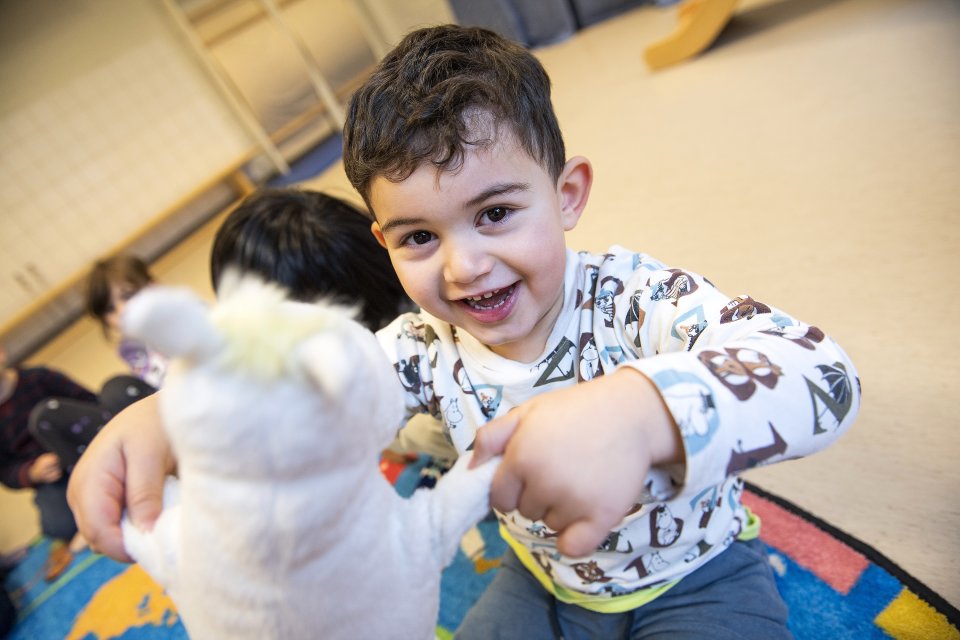
A black handbag is passed from hand to hand as the children sit in a ring on a mat. Jenna Tomperi, 36, an instructor and early childhood education teacher, puts on music and asks the children to close their eyes. Some do as instructed, others can’t help but peek. Little fingers fumble around the bottom of the handbag, feeling its contents one by one.
What’s in Moominmamma’s bag this time? Soon the item hidden in the handbag will be revealed to all.
– Who wants to tell me what the object felt like? Tomperi asks.
The answers range from a blue butterfly to a feather to a bird to a flower.
The handbag and its contents are an essential part of one the mindfulness exercises which can be found in the Friendship Skills with the Moomins material.
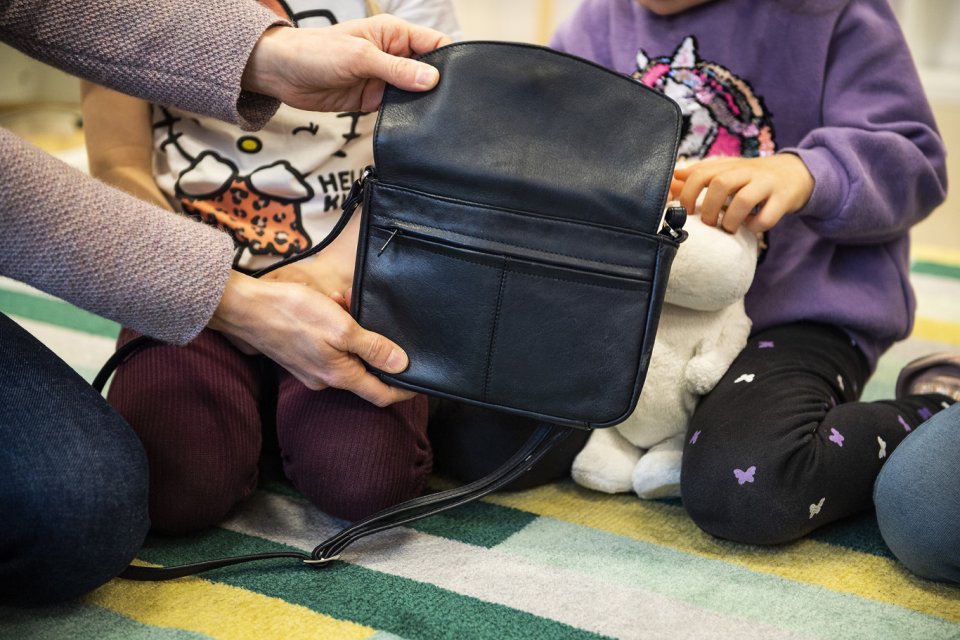
Moominamma’s handbag helps to focus on the moment
Finding the treasures in the handbag helps children to be in the present in the moment through their sense of touch.
Judging by the joyful squeals, the exercise appeals to many.
Tomperi slips her hand into the bag and pulls out something small and light.
– A feather, the children exclaim in unison.
The children in the Bengal Tigers group blow on the feather, which floats towards the floor as a signal that it’s time for the next task.
Friedship skills are useful throughout life
It is especially useful to practise social skills in the autumn, when new children start kindergarten and some move to pre-school groups. Functional games, animated videos and a variety of mindfulness and conversation exercises can teach children skills and habits that will be useful throughout their lives.
At its simplest, it can be as easy as asking a friend: can I take this toy, or are you still playing with it?
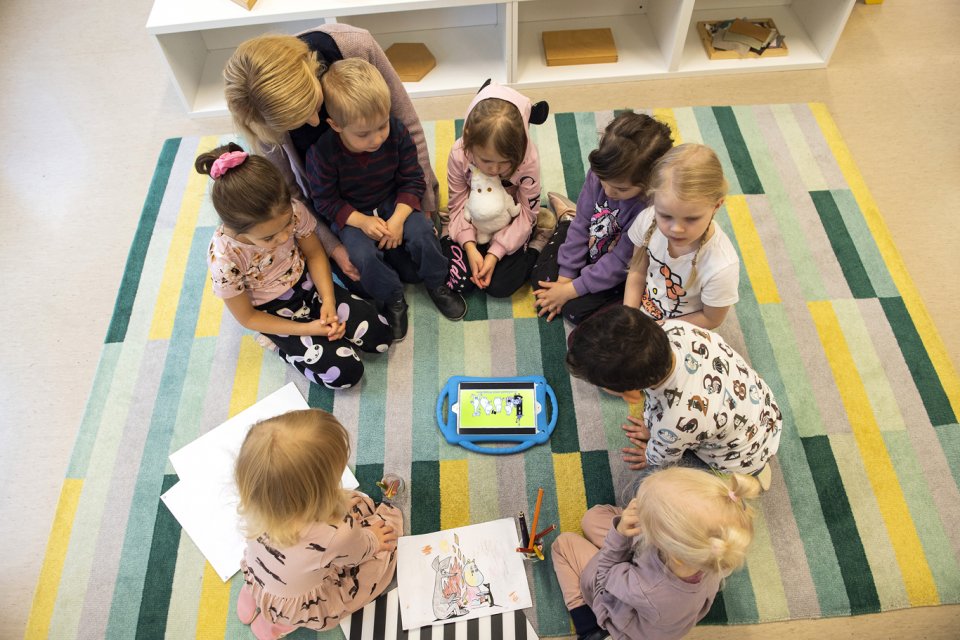
Learning to apologise and ask for help
Tomperi usually uses the Moomin exercises once a week for about half an hour.
She points out how important emotional and communication skills are both in childhood and in adulthood. The more you practise them, the stronger they become. By practising friendship skills from an early age, children learn to act in a way that is constructive both for themselves and for their environment.
Although the activities in the Friendship skills with the Moomins material have only been part of the weekly programme for the children for a few months, Tomperi says the impact is already visible in practice.
– Spontaneous moments of helping are more visible. Apologising is also clearly easier for many.
New insights culminate in a friendship party
Hugging seems to be easy too. This is revealed when Tomperi starts a game where children imitate a crab and walk across the floor with their faces towards the ceiling.
As soon as the Moomin music stops, the children cling to each other’s necks. No one is left alone. Iyas, dressed in a Moomin sweater, looks like he’s going to burst with joy when he receives a hug from his friends.
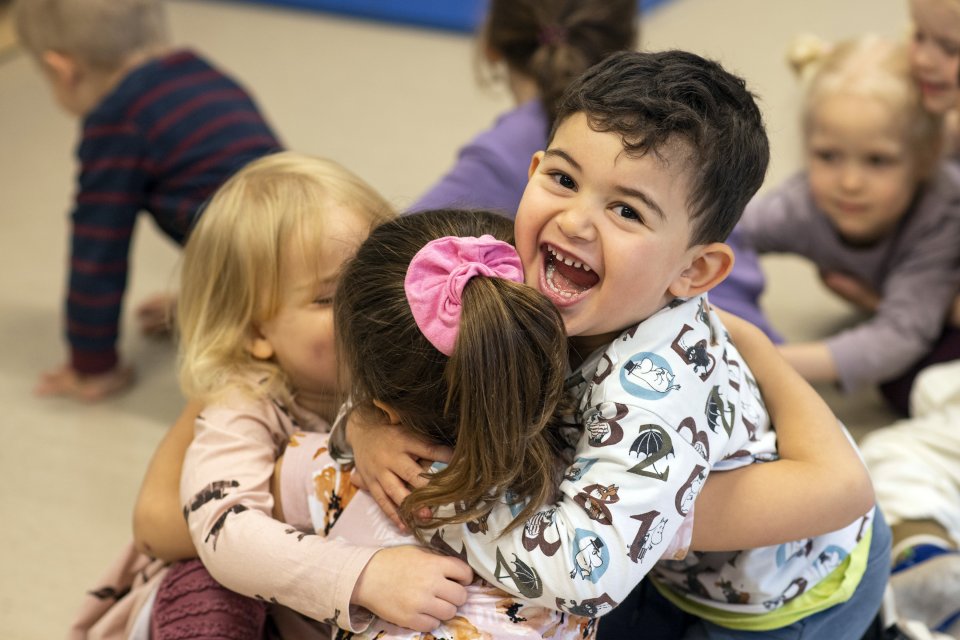
– Challenge yourself in the next section. Don’t run to your best friend, find a friend you’re not used to hugging, says Tomperi.
Soon there are groups of three and couples giggling on the floor, holding each other in a tight hug. It’s a sight one would like to apply in the adult working world as well.
Friendly acts increase the number of beads in the glass jar
Being present, making friends, self-esteem, compassion and loneliness are all skills that need to be practised, whatever your age. Playing games of affection and interaction together strengthens the team spirit of the group.
– We’ve made drawings on a friend’s back, applied invisible magic balm and ridden on the group’s shared hug train,” says Tomperi.
The Montessori kindergarten in Myllypuro encourages friendship skills and good deeds.
An extra bead appears in a glass jar in the kindergarten every time someone has reported a good friendship deed. When the jar is full, so many deeds have been accumulated that the Bengal Tigers group will organise a friendship party.
– – –
Text and photos from the Montessori kindergarten in Myllypuro: copyright Jenna Lehtonen/Red Cross. Read a longer version of the reportage in the Red Cross Avun Maailma magazine 1/2023.
